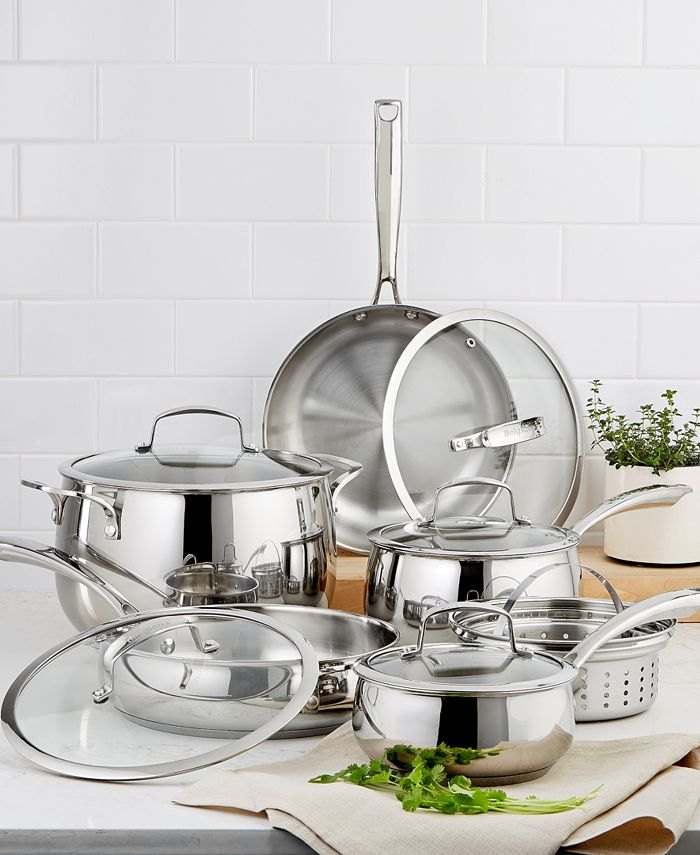Exploring the Pros and Cons of Aluminum Cookware: Is it Safe for Your Kitchen?
Aluminum cookware has been a staple in kitchens around the world for decades. Its lightweight nature, excellent heat conductivity, and affordability make it a popular choice among home cooks and professional chefs alike.
However, concerns have arisen regarding the safety of cooking with aluminum due to its potential to leach into food, especially when exposed to acidic or high-temperature ingredients. In this article, we’ll delve into the pros and cons of aluminum cookware and explore whether it’s a safe option for your kitchen.
Pros of Aluminum Cookware:
1. Excellent Heat Conductivity:
Aluminum is known for its exceptional heat conductivity, which allows for even cooking and precise temperature control. This property makes aluminum cookware ideal for tasks that require quick heating or delicate cooking processes.
2. Lightweight and Affordable:
Compared to other materials like stainless steel or copper, aluminum cookware is lightweight and relatively inexpensive. Its affordability makes it accessible to a wide range of consumers, and its lightweight design makes it easy to handle, especially for individuals with limited strength or mobility.
3. Non-Reactive Surface:
Aluminum cookware typically features a non-reactive surface that prevents it from interacting with acidic foods. This quality ensures that your dishes won’t acquire a metallic taste and makes aluminum pots and pans suitable for cooking a variety of ingredients, including tomatoes, citrus fruits, and vinegar-based sauces.
4. Easy to Clean and Maintain:
Aluminum cookware is generally easy to clean and maintain. Most pieces are dishwasher safe, and they can also be easily cleaned by hand with warm, soapy water. Additionally, aluminum’s natural resistance to rust and corrosion means that with proper care, your cookware can last for many years.

Cons of Aluminum Cookware:
1. Risk of Leaching:
One of the primary concerns associated with aluminum cookware is the potential for aluminum to leach into food during cooking, especially when exposed to acidic or high-temperature ingredients. While the amount of aluminum that leaches into food is typically minimal, some studies suggest that long-term exposure to elevated levels of aluminum may be harmful to health.
2. Reactivity with Certain Foods:
Although aluminum is generally non-reactive, it can still interact with certain acidic or alkaline foods, leading to off-flavors or discoloration. For this reason, aluminum cookware may not be the best choice for dishes that require prolonged cooking times with acidic ingredients, such as tomato-based sauces or citrus marinades.
3. Prone to Dents and Scratches:
While aluminum cookware is lightweight and easy to handle, it is also more prone to dents, dings, and scratches compared to other materials like stainless steel or cast iron. These imperfections can affect the cookware’s performance over time and may also create areas where food particles can become trapped, potentially leading to hygiene issues if not properly cleaned.
4. Not Compatible with Induction Cooktops:
Pure aluminum is not magnetic, which means that it is not compatible with induction cooktops that rely on magnetic fields to generate heat. However, some aluminum cookware is designed with an induction-compatible base that incorporates a layer of magnetic material, allowing it to be used on these types of cooktops.
Aluminum Cookware we recommend: IMUSA USA Heavy Duty 13-Piece Cast Aluminum Cajun Cookware Set
Is Aluminum Cookware Safe?
The safety of aluminum cookware is a topic of ongoing debate among health experts and consumers. While aluminum is a naturally occurring element found in many foods and beverages, concerns arise when it is ingested in higher-than-normal amounts. However, the majority of research indicates that the amount of aluminum that leaches into food from aluminum cookware is generally considered to be within safe limits.
To minimize the risk of aluminum leaching, consider the following tips:
- Avoid cooking highly acidic or alkaline foods in aluminum cookware for extended periods.
- Discard aluminum cookware that shows signs of damage, such as deep scratches or dents.
- Consider using alternative cookware materials, such as stainless steel or ceramic, for dishes that may react with aluminum.
Ultimately, the choice of whether to use aluminum cookware in your kitchen depends on your personal preferences and risk tolerance. While aluminum offers several advantages in terms of affordability and performance, it’s essential to weigh these benefits against the potential risks and take appropriate precautions to ensure safe cooking practices.
In conclusion, aluminum cookware can be a convenient and cost-effective option for many home cooks, thanks to its excellent heat conductivity and non-reactive surface. However, it’s essential to be aware of the potential risks associated with aluminum leaching into food and take steps to minimize exposure. By understanding the pros and cons of aluminum cookware and practicing safe cooking habits, you can make informed decisions about whether it’s the right choice for your kitchen.
